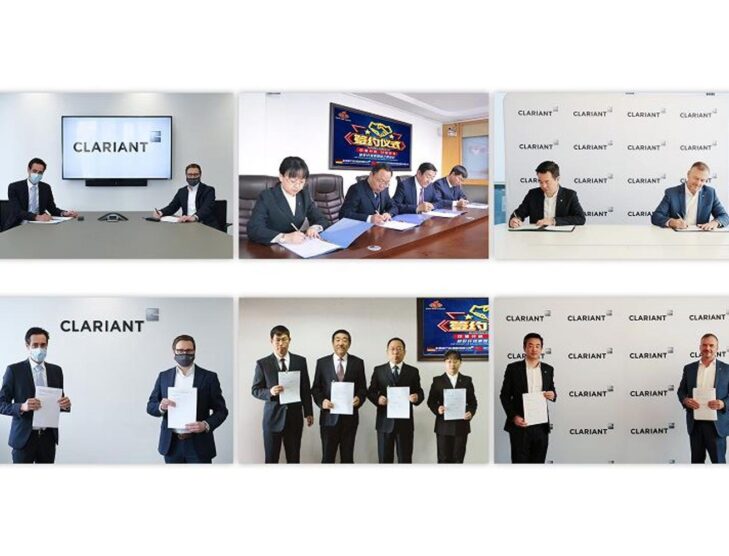
Clariant signs second Chinese licensee for its 2G ethanol technology
Swiss specialty chemical firm Clariant announced that it has signed a license agreement with Harbin Hulan Sino-Dan Jianye Bio-Energy, a Chinese green energy company for its sunliquid® cellulosic ethanol technology.
Harbin Hulan Sino-Dan Jianye Bio-Energy, a subsidiary of the Sino-Dan Jianye Group, was formed in the early 2010s and has been involved in the second generation (2G) biofuels business and research for almost a decade, making the company one of the frontrunners in this field in China.
The project development and plant operation will be performed by Harbin Hulan Sino-Dan Jianye Bio-Energy at a corn-rich greenfield site near Harbin City in the Heilongjiang Province, in Northeast China, utilizing available land and existing infrastructure owned by the Sino-Dan Jianye Group. The annual production capacity is planned to be 25,000 tons of cellulosic ethanol, processing more than 125,000 tons of locally sourced corn stover, making it one of the first 2G biofuel plants to be built in the Heilongjiang Province so far.
The project is comprised of a license for a basic sunliquid® engineering package, the provision of technical services, as well as the supply of starter cultures from Clariant’s proprietary enzyme and yeast platform to process Harbin Hulan Sino-Dan Jianye Bio-Energy’s feedstock into cellulosic ethanol. Detailed project evaluations and preparations for the engineering phase are underway.
“The announcement of the second license deal for our sunliquid® technology in the region emphasizes that China continues to be a growth market for Clariant. Especially at this point in time as China is investing more and more in innovative and sustainable technology solutions,” said Hans Bohnen, Clariant’s chief operating officer.
“China intends to establish a nationwide mandate to achieve a 10% renewable ethanol content in transportation fuels with several provinces such as Heilongjiang having a binding mandate already in place. The project with Harbin Hulan Sino-Dan Jianye Bio-Energy will strengthen our position in the national 2G biofuels market while helping China to achieve its decarbonization targets in the transport sector,” said Christian Librera, vice president and head of Business Line Biofuels and Derivatives at Clariant.
“Cellulosic ethanol technology is a new-generation fuel ethanol technology that is strongly encouraged and supported by the Chinese government. Moreover, it is one of the important technical means by which to realize the goals raised by President Xi Jinping to peak its carbon output by 2030 and to be carbon neutral by 2060. Sino-Dan is delighted to cooperate with our esteemed partner Clariant on the cellulosic ethanol project,” said Wang Jianye, founder and president of the Board of Sino-Dan Jianye Group.
For the Heilongjiang Province, the project represents a significant investment in sustainable technologies, which is strongly supported by the provincial government. The region is characterized by the agriculture sector resulting in abundant feedstock resources, and is also known as the largest province for first generation (1G) bioethanol production in China. By using locally sourced feedstock, in this case corn stover, greenhouse gas savings can be maximized and additional business opportunities along the entire value chain will arise.
The produced cellulosic ethanol will be utilized in the Chinese regional fuels market as a gasoline additive, or as E85 (85% ethanol content) gasoline substitute to fulfill the provincial blending mandate. Cellulosic ethanol is an advanced, truly sustainable, and carbon-neutral biofuel that can be readily blended into conventional fuel and can be used in today’s car infrastructure.
echo '








